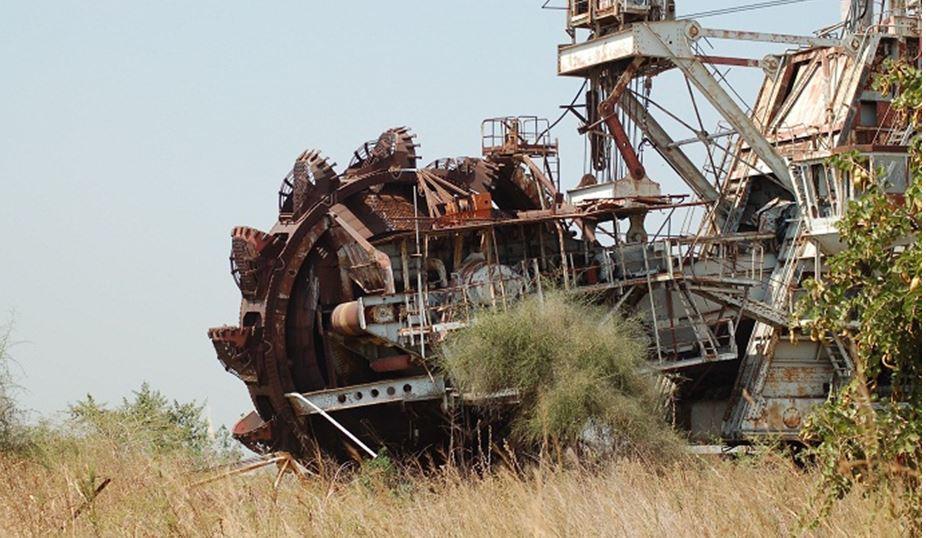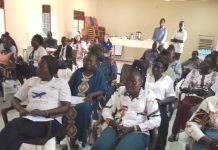Africa-Press – South-Sudan. The resurrection of the Jonglei Canal through the proposal of the national Ministry of Water Resources and Irrigation in coordination with the Egyptian government has been treading the path of controversy.
Most of the citizens have been siding with the ministry, while others have been pushing for its implementation and dredging to ensure an improved flow of water and ease of navigation along the River Nile.
The proposed project is claimed to be the solution to both the economy and the insecurity in areas along the Nile and the Sudd swamp.
The proposal presented last year by the Ministry of Water Resources and Irrigation under the leadership of Manawa Peter Gatkuoth indicated that the project would create avenues for infrastructural development, agriculture, livestock, fisheries, industry, river transport, and tourism; estimating the irrigation area to cover 1,000,000 to 3,000,000 hectares.
The Jonglei Canal was said to be a sigh of relief to the people of the Bahr el Jebel Basin through the reduction of droughts and floods, expansive agriculture and irrigation, the supply of drinking water to arid areas, as well as curbing conflicts among communities in Greater Akobo, Fangak, Pibor, and Bor.
The Manawa asked for the approval of the resumption of the Jonglei Canal, and for the budget to be allocated to kickstart the project.
But the big question has always been about the consequences of the Jonglei Canal Project and the dredging of the rivers, including the Nile on the neighbouring countries.
Call for
support
On Tuesday, the Press Secretary of the Ministry of Water Resources and Irrigation, Gattiek Gatkuoth Wichar, dismissed claims that the equipment for the resumption of work at the Jonglei Canal had already arrived in the country.
He claimed that there were allegations circulating on social media that were misinforming the masses about the resumption of the project and the dredging of the Nile.
He said, “What is currently being done in Unity State, Bentiu, is the setup of the project office in Bentiu while the equipment are being mobilised for the dredging of the Bahr el Ghazal Basin (30kms from Bentiu to Lake No).”
He called for the concerns about the dredging of rivers and the resumption of the Jonglei Canal to be directed to the Ministry of Water Resources and Irrigation.
“Therefore, should there be any concern regarding the revisiting of the Jonglei Canal; dredging of rivers and any other water related matters must be directed to the Ministry of Water Resources and Irrigation.”
Criticism
On March 10, 2022 the Undersecretary of the Ministry of Environment and Forestry stated that the Jonglei Canal was not to be taken at the time of a summon from the Chairperson of the R-TNLA concerning the dredging of rivers and the Proposed Jonglei Canal Development Project.
A day ago, the professor of Anthropology and Public Affairs at Syracuse University, Jok Madut Jok, claimed the resumption of Jonglei Canal was valueless, adding that the citizens would be exposed to death if Egyptian goodies are to be received for the project to take effect.
“I almost lost my own life when I was just a school boy and lost cousins and classmates in Wau in 1982 (courtesy of Governor Alfred Deng Aluk) when we protested the canal and the Port Sudan refinery.”
He claimed that the project was being pushed by Vice President Taban Deng Gai, Minister Manawa Peter Gatkuoth and Dr Riek Machar Teny,
“The overtures being made by VP Taban, Dr Riek and Minister Manawa about the resumption of the Jonglei Canal are just political gimmicks. And those expending time and energy on them are also political, “he added.
He called upon the government to use science to address environmental hazards related to water crisis.
He reiterated that the people living in the Sudd region would continue to suffer destruction of livelihoods and hunger if the Canal work resumes.
“Let the government find ways to increase the productivity of the region, instead of being just locked into the canal or no canal debate. Whether or not the canal project resumes, the glaring reality is that people in the Sudd region and across South Sudan constantly suffer the destruction of livelihoods and hunger still defines the lives of many of them, “he argued.
Looking
for alternative
Last month, a member of the parliament representing Twic East County, Jonglei State, in the Reconstituted Transitional National Legislative Assembly (R-TNLA), David De Dau noted that Jonglei Canal was not the solution to insecurity in Jonglei State or even the country as a whole.
He noted that it was an imaginary project and that lack of proper water control was not a contributing factor to the conflict either in Greater Jonglei or South Sudan as a whole.
“How Jonglei Canal connected to the violence in Jonglei State or the conflict in the Republic of South Sudan. In my view, it is an imaginary project and not to solve any particular issue or to bring lasting peace in the Republic of South Sudan or in Jonglei in particular, “Dau said.
“One thing is that we have an overflow of water, from the River Nile and also water from rain that has not been adequately managed and stored. That is not a contributing factor to the conflict.
He stressed that the flow of water could only be controlled by the construction of a giant dyke between the Nile and the current giant dyke that is under construction.
“In my view, there is a need for a political will from the state government. We need a visionary government in the state that will come up with a project that is going to create the grand dyke. This means having a dyke, for instance, from Bor Town to Pigi County and connecting it to the Sobat River,” he stressed.
“When it is constructed as a road on top of it and a dyke at the same time, with some doors which can be controlled remotely, this dyke should leave the current dyke to the right and should fall between the current dyke and the Nile.”
Memorandum
President Salva Kiir Mayardit met Egyptian President Abdel Fattah Al Sisi in October 2021, and the two discussed a wide range of issues including political stability, economic revival, and security stabilisation.
The office of the president noted in a statement that the visit opened a new page for Egypt and South Sudan to revisit their historic past.
“President Salva Kiir’s visit is both symbolic and, at the same time, presents an opportunity for the two countries to explore new areas of cooperation,’’ read the statement.
The two leaders discussed a memorandum of understanding on the provision of agricultural land to Egyptian investors, and the establishment of educational centres in South Sudan so that Egyptians could impart their expertise to South Sudanese.
History of canal
The Jonglei Canal Project began during the Anglo-Egyptian colonial administration of Sudan, in 1898, which recognised the potential of Sudd to maximise the flow of water of the Nile.
In 1904, Sir William Garstin, published a report on the Upper Nile, and an investigation of the White Nile and its tributaries to bypass the Sudd.
Garstin made recommendations that a channel of approximately 340 kilometres that would bring water from the upper Nile (Bahr el Jebel), at Bor straight to the confluence of the White Nile with the Sobat River.
In 1920, Sir Murdach Macdonald presented an initiative for the building of Sinnar Dam, Jebel Auliya Dam, and a diversion canal to carry water to be stored at the Great Lakes area to reduce loss of water through evaporation.
In 1945, the government of Sudan set up a research team to study the plans for the project, and the team made modifications, to keep the natural fluctuations of the river.
In 1946, Egypt’s Ministry of Works published a study under the title “the Future Conservation of the Nile” within which was the proposal to dig the Jonglei canal.
In 1959, Egypt and Sudan signed the Nile Water Agreement for the utilisation of Nile waters, which included detailed provisions on projects for the conservation of the waters of the swamps of Southern Sudan.
In 1969, an Egypt-Sudan joint technical committee was founded to implement the canal.
In 1971, the committee conducted a study and presented it to the governments of Egypt and Sudan, advising that the projects should be approved to increase water loss in swampy areas.
For More News And Analysis About South-Sudan Follow Africa-Press






